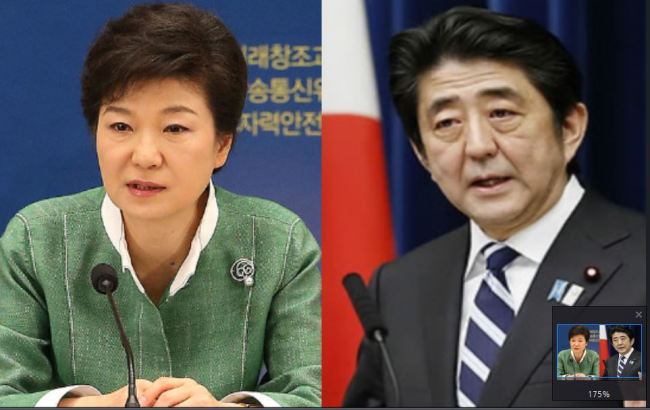
The eponymous “Abenomics,” a set of reform plans named after Japanese Prime Minister Shinzo Abe, frequently turns up in the world’s media.
But nobody ever refers to “Geunhyenomics” for South Korean President Park Geun-hye, and it’s not just because it’s hard to pronounce.
It’s because nothing has changed from the ancient government policies of the 20th century despite almost every aspect of the economy changing.
Consequently, companies are faltering, foreign reserves are down, stock markets are on a losing streak and even exports, the pillar of Asia’s fourth-largest economy, have lost steam.
Seeing the country’s economic fundamentals crumble should be more than enough of a wakeup call for policymakers to address the root of the problem, but this has yet to happen.
The government still seems to believe, or want to believe, that twisting the arms of conglomerates is the only surefire way of fixing an economy.
Mirroring these views, the country’s trade minister issued a clear-cut message when he met with the heads of the nation’s top 30 conglomerates on Thursday: spend or else.
 |
Korean President Park Geun-hye (left) and Japanese Prime Minister Shinzo Abe |
Now let’s pivot back to Japan.
Abenomics, of course has its shortcomings.
As one telltale sign, the Japanese central bank had to cut Japan’s interest rate to below zero. A move reflecting how far the country is from hitting the target inflation rate.
Still, the world’s second-largest economy did pretty well last year. Its GDP grew just over half a percent, which given the size of the Japanese economy wasn’t bad at all, and better than the previous year.
“It’s not just the numbers. It’s the overall mood, that’s become positive, and people have become more positive about the future,” said one official at Japan’s Foreign Ministry.
Japan is of course noticeably too dependent on monetary policies, but it did manage to push ahead with structural corporate reforms. M&As were implemented among the faltering affiliates of key corporations and corruption was if not eradicated, at least detected. Above all, wages were pushed up, and this has led to a lot of satisfaction among the general public.
This was thanks not only to government policies, but to companies that put up a good fight earnings-wise.
Earnings per share, excluding some items, at 159 companies on Japan’s Topix stock index beat analyst estimates last year. And all 10 major industries in Japan have seen positive earnings surprises outweigh negative ones.
The weak yen helped, of course, but firms did their part to push forward with reforms.
That stoked a positive mood among investors who unleashed buy orders in the stock markets. This catapulted the benchmark Nikkei to above the psychologically important 20,000 yen level several times.
South Korea’s stock benchmark, the KOSPI, on the other hand, has been a mess this year.
It fell below the 1,900-point mark several times since January after foreign investors turned into net sellers. Internally, there is no stabilizing factor. Equities are now at the whim of not only the foreign investors, but crude oil prices and the possibility of another rate hike in the U.S.
The bottom line is, Seoul is still barking up the wrong tree.
Conglomerates are only one element of the economy. They cannot and should not be the only fix for Geunhyenomics.
Unless the fundamentals, such as how to make people become less nervous about their livelihoods and open up their purses, are addressed, there is only so much that Samsung and LG can do.
Kim Ji-hyun is The Korea Herald’s Tokyo correspondent. She can be reached at jemmie@heraldcorp.com">
jemmie@heraldcorp.com. --Ed.









